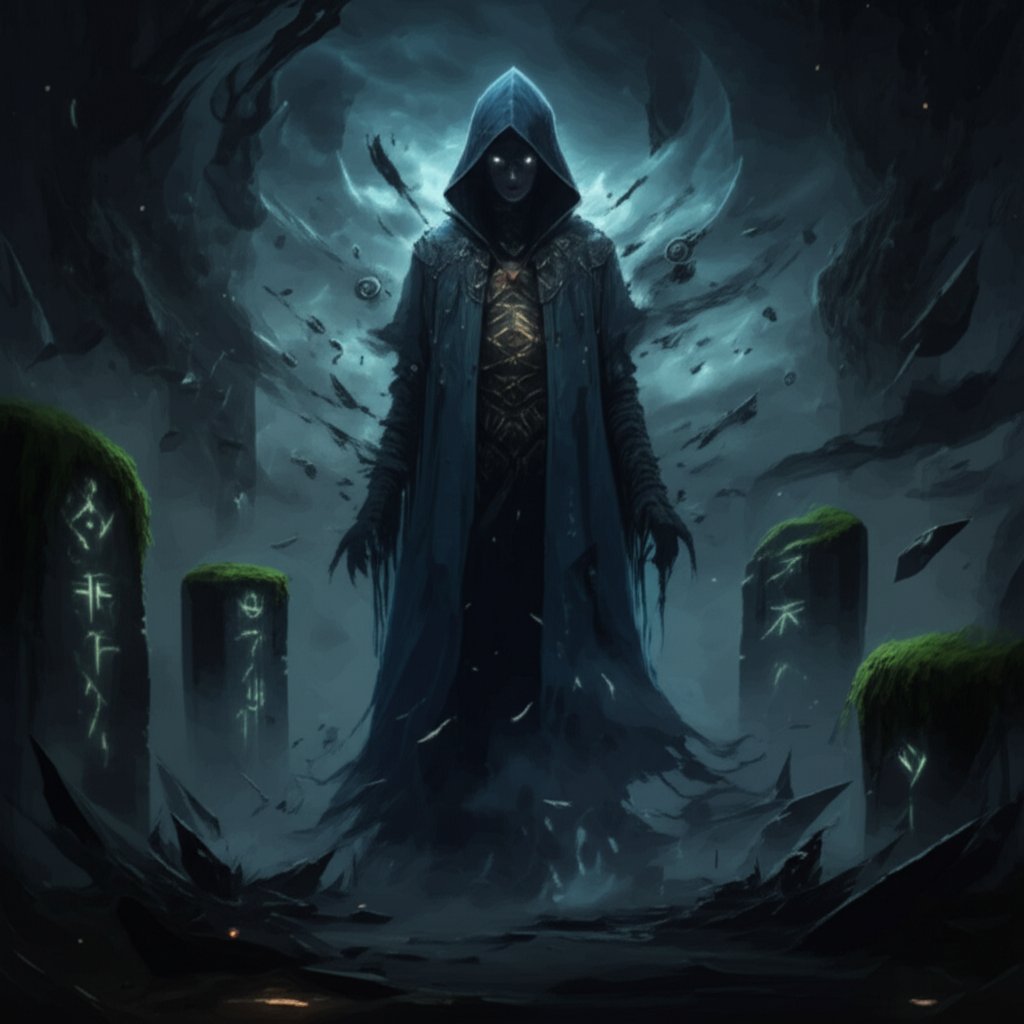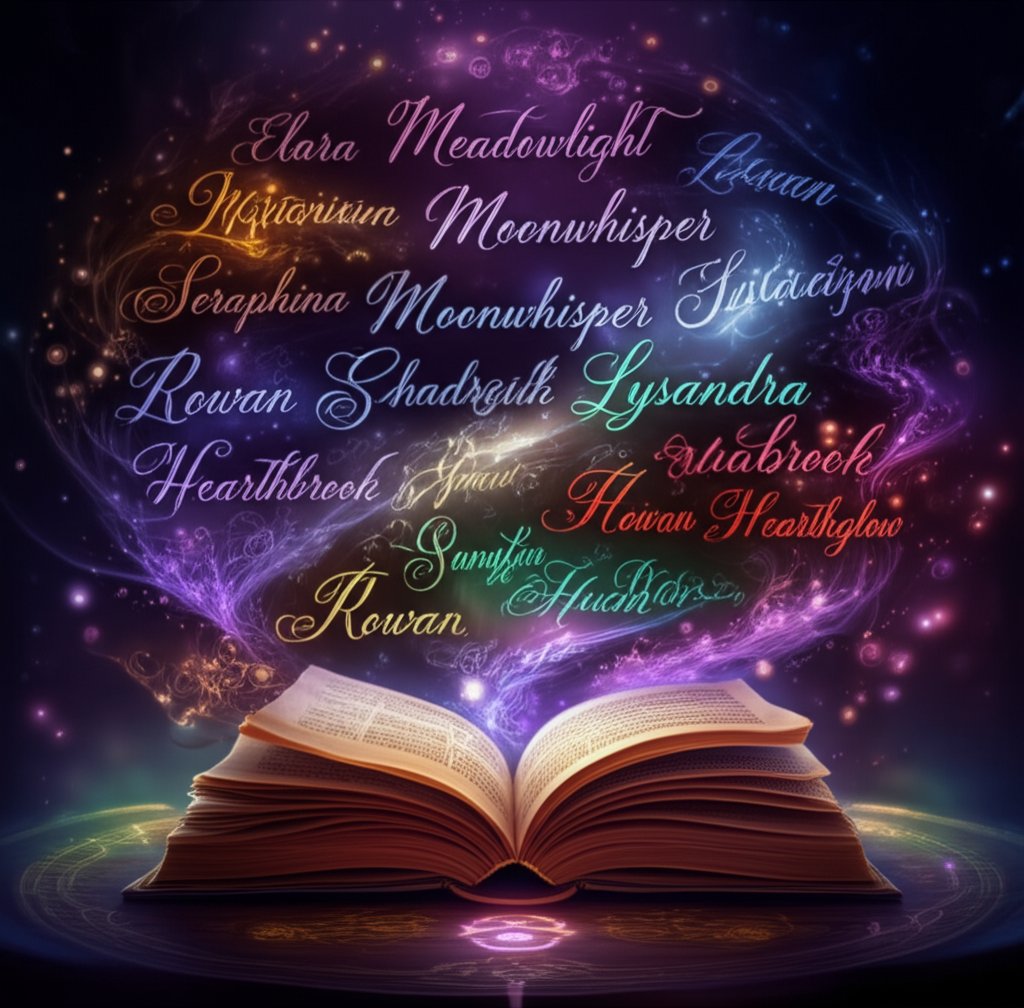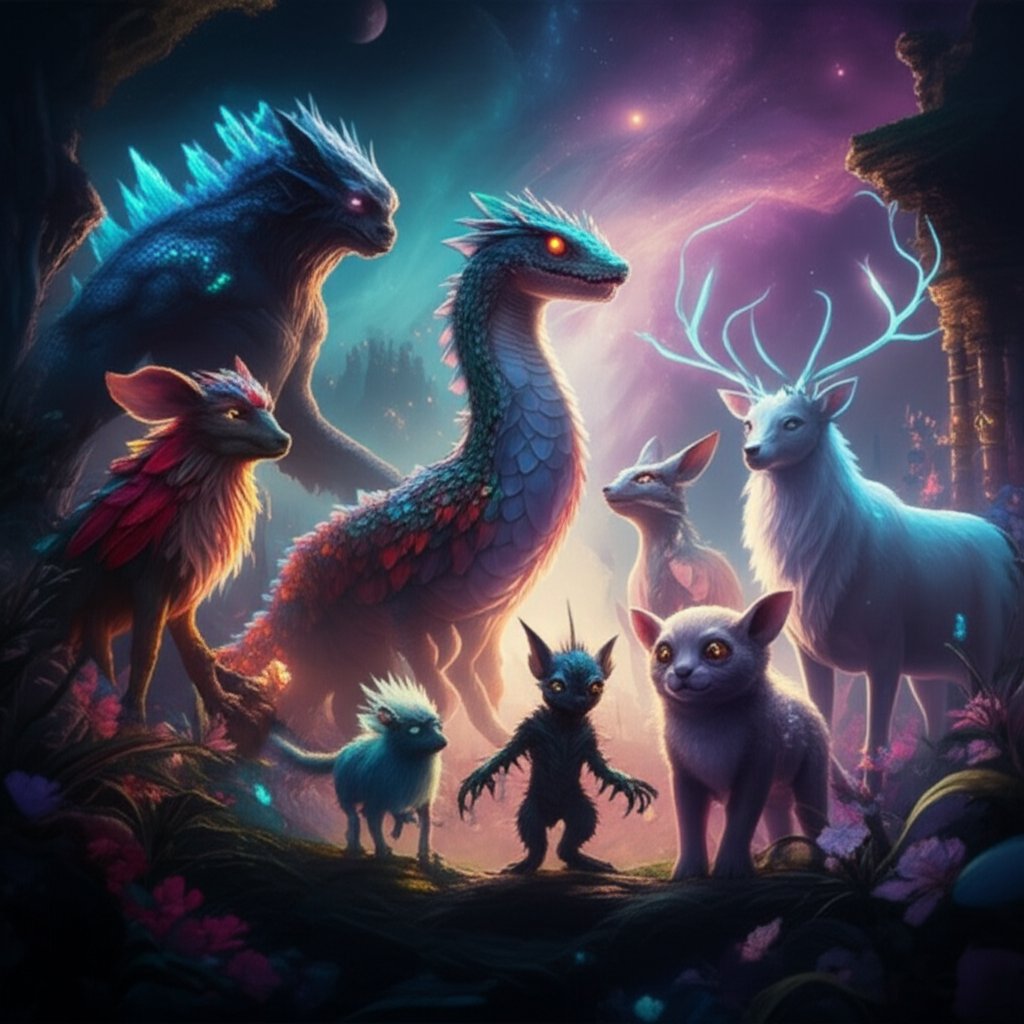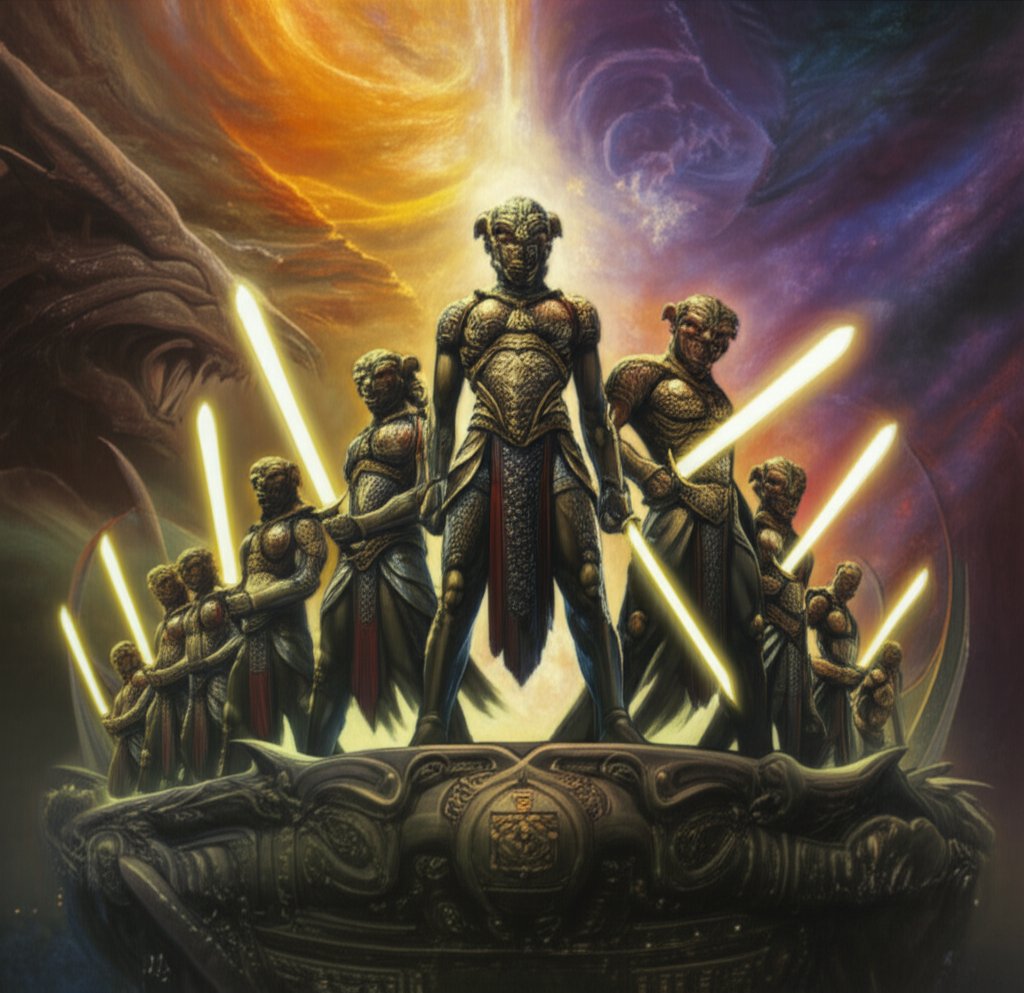Introduction to Demon Name Generators
Ever struggled to find the perfect name for a powerful demon lord in your novel or a menacing adversary in your next tabletop campaign? You’re not alone. Whether you’re a writer, a gamer, or a world-builder, the challenge of crafting unique, memorable demonic names is real. That’s where a demon name generator comes in—a creative tool designed to help you conjure evocative names that instantly set the mood for your story or game.
But what makes demonic names so alluring in fiction and games? Imagine the chilling thrill of encountering names like Asmodeus, Lilith, or Beelzebub. These names carry centuries of myth, fear, and fascination. From classic literature and ancient mythology to modern video games and anime, demonic names evoke mystery, power, and sometimes even a touch of dark humor. In tabletop RPGs like Dungeons & Dragons, these names help define villains, antiheroes, or even misunderstood spirits, giving depth and authenticity to fantastical worlds.
When you turn to a demon name generator, you’re tapping into a tool that blends ancient folklore with creative wordplay. These generators often combine syllables, cultural influences, and mythological references to produce names that feel both fresh and rooted in tradition. The result? A name that can transform a generic villain into a memorable character or give your game’s final boss the gravitas it deserves.
- Writers might seek a name that hints at a demon’s hidden motives or tragic backstory.
- Gamers could need a title that reflects a demon’s elemental powers or rank in the infernal hierarchy.
- Anime fans may crave names that echo the style of series like Demon Slayer, where names often hint at a character’s abilities or origin.
- Tabletop RPG creators might look for gender-specific names—think brooding male demon lords or enigmatic female succubi—to fit their narrative needs.
Throughout this guide, we’ll explore how to use a demon name generator for every creative scenario. You’ll discover the anatomy of a great demon name, tips for finding gendered or franchise-inspired names, and strategies for inventing truly unique entities. Whether you’re crafting demonic names for stories, games, or personal projects, this article will equip you with the knowledge and inspiration to bring your dark creations to life.
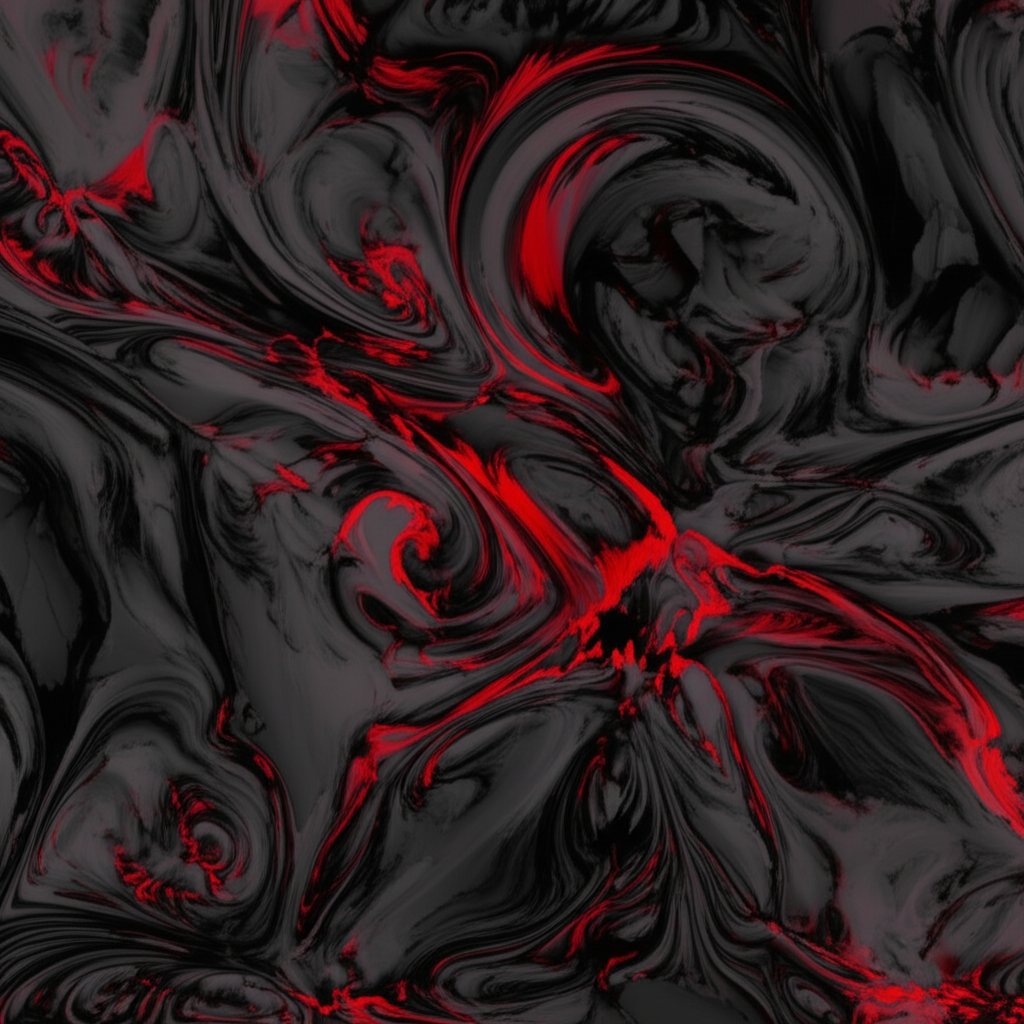
The Anatomy of a Great Demon Name
What makes a demon name instantly feel powerful, ancient, and unforgettable? If you’ve ever wondered why names like "Beelzebub" or "Lilith" linger in your mind, you’re not alone. Crafting the perfect demonic moniker isn’t just about stringing together dark-sounding syllables—it’s about tapping into specific linguistic and thematic patterns that evoke a sense of dread, mystery, and mythological weight. Sounds complex? Let’s break it down so you can spot (or create) the ideal name for your next villain, antihero, or mysterious entity.
Phonetics: The Sound of Darkness
When you say a demonic name out loud, you’ll notice certain sounds just feel more sinister. Harsh consonants, deep vowels, and sibilant hisses are common, creating an auditory impression that’s both alien and intimidating. Imagine names like "Asmodeus" or "Pazuzu"—their impact comes from:
- Harsh consonants (like R, K, Z, and X) that add a guttural, aggressive tone.
- Deep, resonant vowels (O, U, A) that lend gravity and darkness.
- Sibilant sounds (S, SH, Z) that can make names feel serpentine or whispering.
Some constructed demonic languages even avoid certain sounds altogether, like plosives, to make the names pronounceable by inhuman mouths—think of a demon whose name must be spoken by a snake or bird [source].
Ancient Roots: Inspiration from Old Languages
Many of the most compelling demon names draw inspiration from ancient tongues—Hebrew, Aramaic, Latin, and even invented languages like Enochian. These roots give names a sense of age and authenticity, hinting at lost civilizations or forbidden knowledge. For example, Enochian, a language constructed for occult rituals, blends mysterious phonetics with the aura of ancient magic. When using an ancient demon name generator, you might notice names that echo these historical influences—sometimes even mixing syllables or structures from multiple mythologies.
Thematic and Cultural Resonance
Demonic names aren’t just about how they sound—they’re about what they mean. The best names reflect the demon’s role, power, or origin. For instance, names tied to concepts like fire, blood, or debt can reinforce a demon’s story or abilities. In some fictional conlangs, vocabulary is shaped by what matters most to demonkind—like power, magic, or the idea of owing and repaying debts.
- Syllabic structure: Multi-syllable names often feel more elaborate and ancient (e.g., "Mephistopheles").
- Thematic ties: Words or roots that evoke darkness, elements, or forbidden acts (e.g., "Azazel" for rebellion, "Mammon" for greed).
- Mythological resonance: Names that echo real-world legends or religious texts, lending instant credibility and depth.
- A sense of power and dread: The combination of sound, meaning, and myth creates names that feel truly formidable.
To sum up, a truly great demonic name is more than just a random assembly of edgy sounds. It’s a carefully crafted blend of phonetic style, ancient inspiration, and thematic meaning. Next, we’ll see how these principles come to life when using a random or classic demon name generator, and how you can filter results to find a name that fits your vision perfectly.
Generating Classic and Random Demonic Names
Ever stared at a blank page, wishing you could summon the perfect demon name with a single click? That’s the magic of a random demon name generator. These tools are a favorite among writers, game masters, and world-builders who need inspiration fast—but how do they actually work, and how can you get the most out of them?
How Random Demon Name Generators Work
At their core, most demonic names generators use clever algorithms to combine different fragments—prefixes, roots, and suffixes—into names that sound both menacing and memorable. Imagine mixing and matching building blocks, like “Bal-,” “-zeth,” or “-arax,” to create names such as “Balzeth” or “Thryskarax.” The result? A wide variety of names, each with their own flavor and tone.
- Prefixes: Often harsh or guttural, setting the tone (e.g., "Kor-", "Thry-").
- Roots: The core meaning or sound, sometimes inspired by myth or language (e.g., "-zeth", "-skar").
- Suffixes: Add power or finality (e.g., "-al", "-ax").
Some generators even let you specify male or female names, or add a title like “Lord of Nightmares” for extra gravitas.
Tips for Using and Refining Results
When you use a random demon name generator, you’ll notice a few things:
- Results are quick—often ten names at a time, with a simple button press.
- If a name doesn’t fit, just click again to reroll and get a fresh batch.
- Some tools allow you to filter by gender, length, or even add thematic elements.
But how do you pick the right name? Here are some practical steps:
- Write down your favorites from each batch—sometimes the perfect name jumps out after a few tries.
- Consider your character’s role—is this a demon lord, a mischievous imp, or a tragic antihero?
- Say the names aloud—the best demonic names often have a satisfying, powerful sound.
- Mix and match fragments—don’t be afraid to tweak a generated name for a truly custom result.
Beyond Random: Adding Depth and Cultural Meaning
While random generators are fantastic for quick brainstorming, sometimes you want a name that carries more weight—a name that hints at ancient origins, cultural resonance, or even a hidden story. This is where deeper, context-rich name generators shine. For example, the Chinese Name Generator by CNG goes beyond random assembly. It draws from authentic linguistic roots, ensuring each name carries cultural significance and symbolic meaning. Imagine naming your demon after the concept of "shadow," "spirit," or "ancient fire"—suddenly, your character has a backstory built right into their name.
“A random demon name generator is perfect for fast inspiration, but for stories that demand depth and authenticity, consider tools that weave cultural or mythological meaning into every syllable.”
When to Use Random vs. Context-Rich Names
| Scenario | Best Tool | Why? |
|---|---|---|
| Quick brainstorm for minor characters or NPCs | Random demon name generator | Speed and variety—get names instantly with no fuss |
| Main villain or lore-heavy antagonist | Culturally meaningful name generator (e.g., CNG) | Names with depth, symbolism, and narrative potential |
| Story set in a specific culture or mythos | Specialized generator (e.g., Chinese, Japanese, or myth-based) | Authenticity and immersion in your world-building |
So, when you’re drafting your next dark fantasy tale or prepping for a campaign, remember: random generators are your first stop for inspiration, but don’t hesitate to seek out tools that offer deeper, more meaningful options. In the next section, we’ll dive into how to find powerful, archetypal names for male demons—perfect for your next villain or antihero.
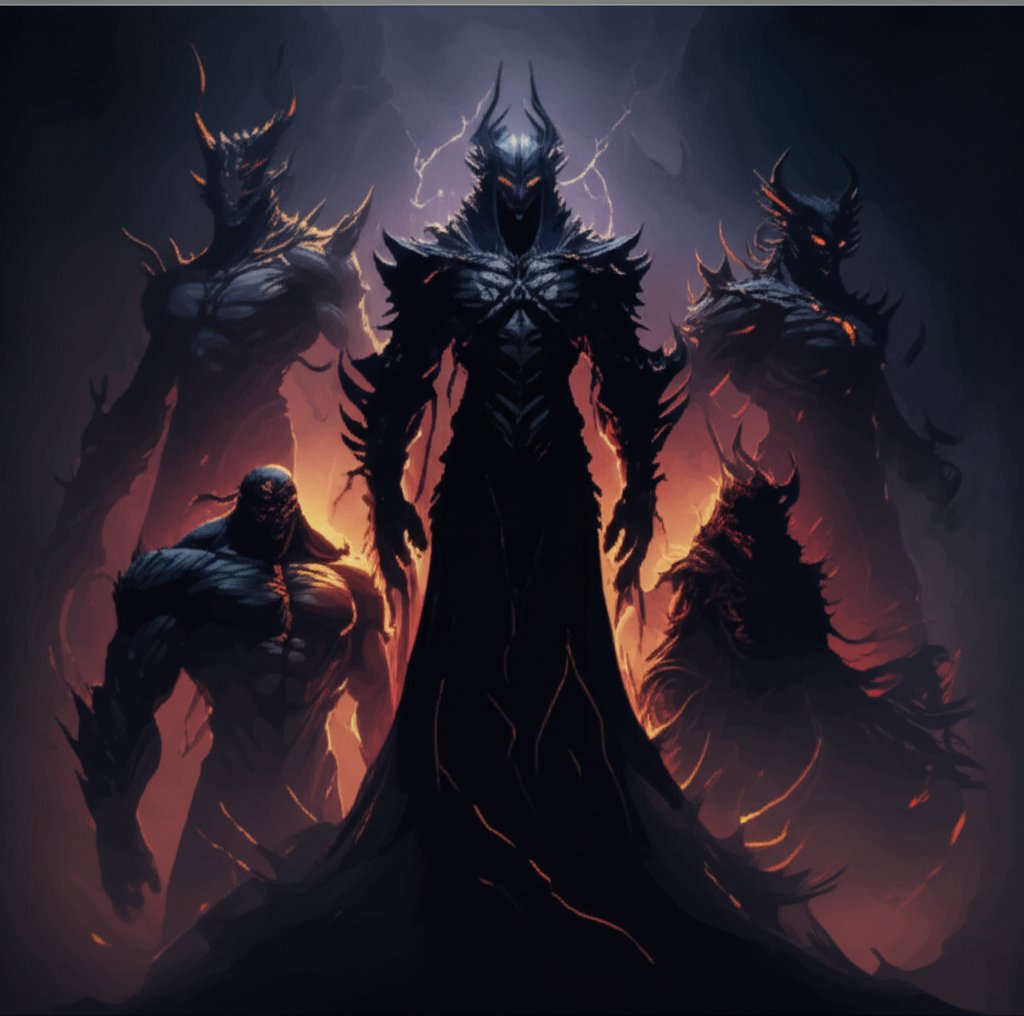
Finding Powerful Names for Male Demons
Ever wondered why some male demon names instantly conjure images of unstoppable force or chilling cunning? When you use a demon name generator male, you’re not just searching for a random dark-sounding label—you’re looking for a name that fits a specific archetype, evokes a sense of power, and sets the tone for your story or game. But how do you pick the right one, and what makes these names so impactful?
Understanding Male Demon Archetypes
Male demon names often reflect the demon’s core identity—whether he’s a brute force of nature, a scheming manipulator, or a corrupted fallen angel. Let’s break down some of the most common archetypes you’ll encounter when searching for names:
- Brute Force: Names that sound heavy, guttural, and imposing. Think of demons who smash through obstacles or command armies with sheer strength.
- Tyranny: Names that radiate authority and dread. These are the overlords and rulers of hellish realms, commanding respect and fear.
- Corruption: Names with a slithering, insidious feel, perfect for demons who tempt, deceive, or corrupt the innocent.
- Elemental Fury: Names that evoke fire, storms, or other primal forces—ideal for demons tied to natural disasters or elemental magic.
When you use a male demon names generator, you’ll often be able to specify the archetype you want, or filter names by theme, origin, or even mythological influence. This helps you find a name that not only sounds right but also fits your character’s backstory and abilities.
Tips for Using a Male Demon Name Generator Effectively
- Define your demon’s role: Is he a warlord, a trickster, or an elemental force? Knowing this will help you filter results.
- Consider cultural or mythological roots: Many generators let you choose influences like Norse, Greek, or Japanese for added depth.
- Look for names with strong phonetics: Harsh consonants and deep vowels often create a more memorable, intimidating name.
- Experiment with combinations: Don’t be afraid to tweak or merge generated names for a unique twist.
- Check the meaning: Some generators provide background or meanings, which can inspire character traits or story arcs.
Comparing Male Demon Archetypes, Name Traits, and Examples
| Archetype | Name Characteristics | Example Concepts |
|---|---|---|
| Brute Force | Short, harsh syllables; heavy consonants; primal energy | Abaddon ("destruction"), Behemoth ("monstrous strength"), Fenrir |
| Tyranny | Regal or commanding tone; multi-syllabic; roots in "lord" or "king" | Lucifer ("fallen angel, pride"), Baal ("lord"), Belial ("lawlessness") |
| Corruption | Sibilant, slithering sounds; names that suggest deception | Mephistopheles ("tempter"), Azazel ("uncleanliness") |
| Elemental Fury | References to fire, storms, or chaos; dynamic, energetic | Agares ("earthquakes"), Ahriman ("evil spirit"), Pazuzu ("wind demon") |
For even more inspiration, check out extensive lists of male demon names and their mythological backgrounds. Names like Asmodeus (king of demons), Dagon (lord of the sea), and Hades (ruler of the underworld) each carry unique connotations and histories. Many generators allow you to search by these legendary figures or generate new names inspired by their legacy.
By understanding these archetypes and using the right filters, you’ll find a name that not only fits your character’s role but also stands out in any story or game. Next, we’ll explore how to discover evocative names for female demons, from seductive succubi to queens of darkness.
Discovering Evocative Names for Female Demons
When you picture a female demon in your story or game, what comes to mind? Is she a master of manipulation, a wielder of forbidden magic, or a shadowy queen of the night? If you’ve ever struggled to find a name that captures this complexity, you’re not alone. The world of demon names female is as diverse as it is fascinating—stretching far beyond the classic succubus archetype. Let’s explore how you can use a female demon name generator to craft names that are both alluring and intimidating, and why the right name can elevate your character from ordinary to unforgettable.
Beyond the Succubus: Female Demon Archetypes
Female demons have appeared in myth, folklore, and fiction for centuries, each with their own unique traits and stories. While seduction and temptation are common themes, many female demons are defined by their cunning, magical prowess, or tragic backstories. Imagine characters inspired by:
- Manipulation and Deceit: Names that sound mystical or alluring, perfect for demons who weave webs of lies or influence mortal minds.
- Dark Magic: Names that evoke power, mystery, or forbidden knowledge—ideal for sorceresses and witches of the underworld.
- Ethereal Horror: Names that feel otherworldly or haunting, suited for spirits that inspire fear or sorrow.
- Vengeance and Chaos: Names that carry a sense of wrath, tragedy, or wild unpredictability.
For example, names like “Morgath” (wrath and chaos) or “Sorathia” (wisdom and secrets) reflect the character’s core essence and narrative role.
Tips for Using a Female Demon Name Generator
Staring at a long list of options can be overwhelming. How do you pick the right name? Here’s a step-by-step approach to make the process easier and more creative:
- Define Your Demon’s Theme: Decide if your character embodies night, poison, seduction, or perhaps a queenly presence. This focus will help you filter names that fit.
- Experiment with Sound: Sibilant sounds (like S, Z, or X) often make names feel serpentine or mystical—think “Semeal” or “Xylith.” Harsh consonants add aggression, while softer tones suggest allure.
- Blend Syllables: Don’t be afraid to combine elements from different names or languages. Merging “Nyx” (night) and “Demon” could yield “Nyxadon,” hinting at a shadowy ruler of darkness.
- Say It Out Loud: Sometimes, a name looks good on paper but lacks impact when spoken. Choose names with a strong, memorable sound.
- Respect Cultural Origins: If you’re inspired by mythological names, research their background to ensure your choice is appropriate and meaningful.
Evocative Concepts for Female Demon Names
Looking for inspiration? Here are some themes and techniques to spark your creativity:
- Names inspired by night, poison, or shadow (e.g., Nyx, Belladonna, Lamia)
- Sibilant, whispering sounds that add an air of mystery (e.g., Semeal, Zephyra)
- Deceptively beautiful names with a hidden edge (e.g., Seraphina, Elysia)
- Roles like queens, oracles, or tragic spirits (e.g., Morrigan, Amonet, Naamah)
These approaches help you move beyond clichés, ensuring your character stands out with a name as unique as her story [source].
Common Challenges and Creative Solutions
Ever picked a name and realized it doesn’t fit your character’s vibe? Or worried that a name might be too cliché or culturally sensitive? Here’s how to handle these common hurdles:
- Decision Paralysis: Narrow your shortlist to names that match your demon’s core traits. Focus on top five contenders to simplify your choice.
- Mismatch with Character: Double-check the etymology and connotations. If it feels off, tweak the name or look for variations.
- Cultural Sensitivity: Research the origin and significance of names from other cultures. When in doubt, create an inspired variation rather than using a sacred name directly.
- Lack of Impact: Opt for names with bold phonetics—names that command attention when spoken aloud.
Ultimately, the best female demon names are those that resonate with your character’s essence and your creative goals. Whether you use a female demon name generator for instant inspiration or craft your own by blending evocative sounds and meanings, you’ll find endless possibilities to bring your dark queen, oracle, or sorceress to life. Ready to channel these ideas into your next character? Up next, we’ll see how anime and series like Demon Slayer inspire unique demon names with their own special flair.
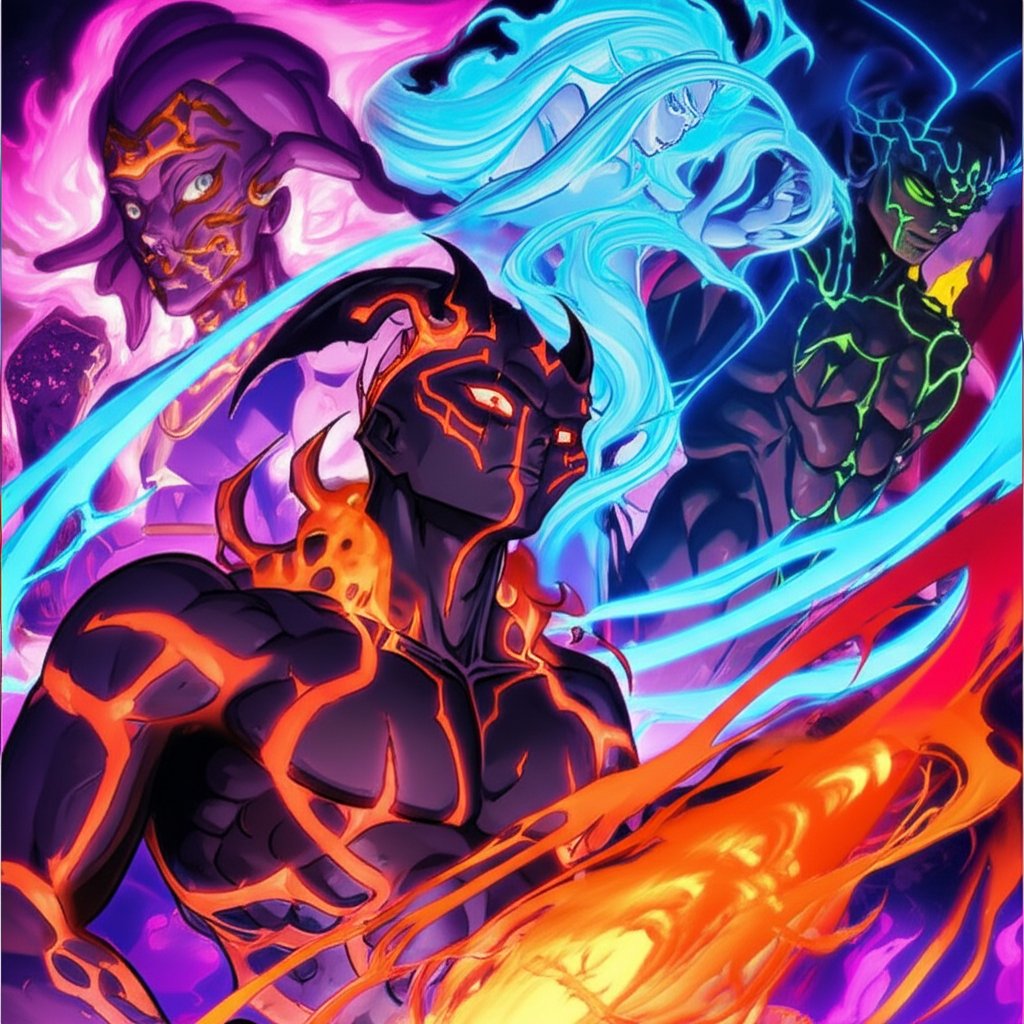
Drawing Inspiration from Demon Slayer and Anime
When you watch anime like Demon Slayer or dig into manga filled with supernatural battles, have you ever noticed how the names just fit the characters? Names in these worlds aren’t chosen at random—they’re crafted to echo powers, personalities, and even destinies. If you’re hoping to create your own anime-inspired demon or need a name that feels right at home in a manga universe, understanding these naming conventions is key. So, how do you capture that authentic anime flair using a demon slayer demon name generator or an anime demon name generator?
What Makes Anime Demon Names Unique?
Sounds complex? Let’s break it down. In series like Demon Slayer: Kimetsu no Yaiba, names are deeply meaningful. They often weave together Japanese kanji that hint at a character’s family trade, elemental power, or even their fate. For example:
- Tanjiro Kamado: "Tan" means charcoal, reflecting his family’s trade, while "jiro" (second son) is a traditional suffix. His name signals both heritage and warmth.
- Muzan Kibutsuji: "Muzan" means cruelty, and "Kibutsuji" contains the kanji for Oni (demon), instantly marking him as the series’ main antagonist.
- Rengoku: This family name means "purgatory," fitting for fire-wielding warriors who stand between life and death.
- Enmu: Means "sleep groaning dream," perfectly capturing the character’s dream-based powers.
In general, you’ll notice that Demon Slayer and similar anime use names as subtle storytelling tools—embedding hints about powers, roles, or emotional arcs right in the name itself [source].
Japanese Phonetics and the Power of Sound
Japanese demon names often play with sound and rhythm to make them memorable. Certain sounds evoke specific feelings: harsh consonants might suggest strength or danger, while softer syllables can hint at mystery or cunning. For example, "Oni" (demon/ogre) is short and forceful, while names like "Susamaru" (maru meaning "circle") reflect the character’s weapon and fighting style.
- Short names (e.g., "Rui") can feel sharp or enigmatic.
- Multi-syllabic names (e.g., "Kokushibo") add an air of ancient power.
- Names using kanji for elements (fire, water, shadow) immediately signal a character’s abilities or theme.
Anime also draws on the rich world of Japanese folklore, with terms like Yōkai (mystical beings), Oni (ogres/demons), and Obake (shapeshifters) providing inspiration for both names and character concepts [source].
How to Use an Anime Demon Name Generator for Original Characters
Ready to try a demon slayer demon name generator or an anime demon name generator for yourself? Here’s how to get the most authentic results:
- Start with a Theme: Decide if your character is tied to an element (like fire or water), a personality trait (cruelty, hope), or a specific role (warrior, trickster).
- Choose Japanese or Japanese-inspired Syllables: Generators often let you select syllable patterns or kanji roots. Look for options that echo real anime names.
- Reflect Powers in the Name: For example, if your demon manipulates dreams, include syllables or kanji for "dream" (yume, 夢) or "sleep" (nemuri, 眠り).
- Check the Meaning: Many tools offer translations or explanations—use these to make sure your name matches your character’s vibe.
- Say It Out Loud: The best anime demon names flow naturally and are easy to remember, so try a few out loud before settling.
Tips for Creating Names That Reflect Character Abilities
- Use kanji or syllables that directly reference your character’s power (e.g., "Kage" for shadow, "Hi" for fire).
- Blend traditional Japanese words with fantasy elements for a unique twist.
- Draw inspiration from folklore creatures—like Tengu, Kappa, or Yūrei—to give your demon a mythic edge.
- Consider dual meanings or puns, as seen in Demon Slayer, to add depth and subtlety.
Imagine naming a demon who controls rivers "Kawaoni" (kawa = river, oni = demon), or a dream-eating spirit "Yumegami" (yume = dream, gami = god/spirit). These names instantly tell your audience something about the character—no exposition needed.
By understanding and applying these anime naming strategies, you’ll create characters who feel like they belong in the world of Demon Slayer or your favorite manga. Next, we’ll see how these lessons translate to other popular universes, like D&D and Hazbin Hotel, where naming conventions take on new forms and meanings.
Name Ideas for Your D&D or Hazbin Hotel Character
When you’re building a new character for Dungeons & Dragons or diving into the wild world of Hazbin Hotel, have you noticed how differently these universes approach demon names? If you’re using a d&d demon name generator or a hazbin hotel demon name generator, the results will reflect the unique lore and tone of each setting. Let’s break down what makes these naming conventions distinct, and how you can use them to bring your next character to life.
Demons and Devils in D&D: Lore and Naming Conventions
In D&D, the difference between demons and devils is more than just a matter of style—it’s a core part of the game’s cosmology. Demons hail from the chaotic Abyss, embodying destruction, madness, and unpredictability. Devils, on the other hand, come from the Nine Hells and represent lawful evil, cunning, and strict hierarchy. Each group has its own naming traditions:
- Demons: Names are guttural, harsh, and often multi-syllabic, reflecting their chaotic nature. Think "Orcus," "Demogorgon," or "Yeenoghu." These names feel ancient and otherworldly, sometimes impossible to pronounce at first glance.
- Devils: Their names often have a Latin or infernal twist, suggesting a structured, bureaucratic evil. Names like "Asmodeus," "Belial," or "Dispater" carry authority and tradition.
When you use a d&d demon name generator, you’ll often be able to select between these two categories, or even specify the type of fiend you want to create. This helps ensure your demon’s name fits the lore and aligns with the character’s personality or backstory. For example, a demon lord might have a name with multiple harsh syllables and a grandiose title, while a lesser demon might have a shorter, punchier name.
Hazbin Hotel: Modern, Playful, and Pop-Culture-Inspired Names
Switch gears to Hazbin Hotel, and you’ll find a totally different approach. Here, demon names are as varied as the characters themselves, mixing modern slang, puns, and references to pop culture with classic infernal motifs. Names like "Angel Dust," "Alastor," and "Vox" are short, memorable, and often reflect the character’s personality, role, or even their original sin or occupation in life [source].
- Playful and Accessible: Many Hazbin names double as nicknames or stage names, making them instantly recognizable and easy to remember.
- Reflective of Backstory: Sinners (former humans) often have names tied to their earthly lives, while Hellborns might have more fantastical or infernal-sounding names.
- Visual and Thematic Puns: Characters like "Vox" (a TV-headed demon) or "Cherri Bomb" (an anarchist with bomb motifs) use their names to hint at their design or abilities.
A hazbin hotel demon name generator will often produce names that are quirky, fun, and layered with meaning—perfect for a universe where humor and social commentary sit side by side with the supernatural.
Comparing D&D and Hazbin Hotel Naming Styles
| Aspect | D&D Demon/Devil Names | Hazbin Hotel Demon Names |
|---|---|---|
| Origin | Mythological, ancient, infernal | Modern, pop-culture, pun-based |
| Phonetics | Harsh, multi-syllabic, guttural | Short, catchy, playful |
| Meaning | Reflects power, rank, or lore | Reflects personality, occupation, or visual motif |
| Examples | Demogorgon, Asmodeus, Belial | Alastor, Angel Dust, Cherri Bomb |
| Generator Focus | Dark, epic, fitting for high fantasy | Humorous, accessible, character-driven |
Tips for Choosing the Right Name
- Match the Setting: If you’re playing in a traditional fantasy world, lean into the ancient, infernal style of D&D. For a modern, satirical setting, embrace Hazbin’s playful approach.
- Consider Character Role: A demon lord needs a name that commands respect; a comic relief character might benefit from a pun or quirky nickname.
- Use Generators Creatively: Don’t be afraid to tweak generated names or combine elements from both styles for a truly unique result.
By understanding these naming conventions, you’ll be ready to create characters who feel right at home in any universe. Up next, we’ll dive into how titles and archetypes like demon lords and hunters can add even more depth to your demonic creations, and how to use naming tools to craft names with gravitas and cultural significance.
Naming Demon Lords, Hunters, and Other Archetypes
When you picture a demon lord ruling over a fiery underworld or a relentless demon hunter tracking evil across realms, what’s the first thing that comes to mind? Chances are, it’s their name—and more importantly, their title. The right name, paired with a fitting title or archetype, instantly signals a character’s power, role, and legacy. But how do you craft or select a name that truly stands out? Let’s break down how to use a demon lord name generator or demon hunter name generator to create names that resonate with depth, gravitas, and narrative potential.
Why Titles and Archetypes Matter in Demonic Naming
Sounds complex? Not really, once you see the patterns. In demonology and fantasy fiction alike, titles are more than just labels—they’re signals of rank, power, and reputation. Imagine the difference between “Azazel” and “Azazel, Lord of the Abyss.” The addition of a title not only elevates the character but also hints at their domain, abilities, or legend. Titles help with world-building, making your creations memorable and giving readers or players a clear sense of hierarchy and purpose.
- Demon Lords: Command legions, rule over realms, and often embody a particular sin or element (e.g., Asmodeus, Lord of Lust; Belial, Duke of Lawlessness).
- Demon Hunters: Stand as legendary adversaries to demonic forces, often with names and titles that reflect their courage, skills, or ancestry (e.g., Van Helsing the Slayer, Geralt of Rivia the Witcher).
- Ancient Evils: Timeless beings whose names echo through myth and legend—think of titles like “The Eternal Devourer” or “The First Darkness.”
- Elemental Demons: Masters of fire, ice, storm, or shadow, often with names that blend their element with descriptors of power (e.g., Pyraxis the Flame Tyrant, Zephyron the Storm Herald).
How to Use Name Generators for Powerful Titles
When you turn to a demon lord name generator or demon hunter name generator, you’ll notice the best tools go beyond random syllable assembly. They allow you to specify archetypes, elements, or even the type of title you want to attach. Here’s how to get the most out of these tools:
- Start with Archetype: Decide if your character is a ruler, a slayer, a primordial force, or a cunning manipulator. This focus will guide your name search.
- Add a Title: Use titles like Lord, Baron, Slayer, Oracle, or Herald to immediately convey authority or purpose.
- Mix and Match: Combine generated names with custom titles or elements for a result that’s both unique and evocative.
- Check for Resonance: Say the full name and title aloud. Does it sound imposing, mysterious, or legendary? If not, tweak until it does.
Brand-Building and Narrative Weight in Demonic Names
Ever wondered why some names stick in your mind long after the story ends? It’s about brand-building—creating a name that not only fits the character but also carries symbolic or cultural weight. For writers and creators aiming for depth, using a tool that draws from authentic linguistic roots can make all the difference. For instance, the Chinese Name Generator by CNG offers more than just random combinations. It crafts names with real cultural significance, allowing you to infuse your demon lord or hunter with a sense of history, myth, or elemental symbolism. Imagine naming your villain after the Chinese concept of "shadow" or "eternal fire"—suddenly, your character’s name is a story in itself.
“A title is more than a label—it’s a promise of what your character represents in your narrative world.”
Ideas for Other Demonic Archetypes
Still searching for the perfect fit? Here are some archetypes and title ideas to inspire your next creation:
- The Whispering Oracle – A demon who manipulates fate or secrets.
- The Devourer of Hope – An ancient evil that feeds on despair.
- The Frostbound Regent – An elemental lord ruling over ice and winter.
- The Bloodforged Warden – A guardian demon bound by ancient pacts.
- The Infernal Herald – A messenger of doom, announcing calamities.
- The Ashen Queen – A female demon lord presiding over loss and ruin.
When using a name generator, try pairing these titles with evocative names from your chosen tool or blend them with culturally meaningful roots for extra depth.
Table: Archetype, Title, and Example Name Pairings
| Archetype | Title | Example Name |
|---|---|---|
| Demon Lord | Lord of Ruin | Kaelthar, Lord of Ruin |
| Demon Hunter | The Shadowbane | Seraphine the Shadowbane |
| Ancient Evil | The First Darkness | Morvax, The First Darkness |
| Elemental Demon | Storm Herald | Zephyron the Storm Herald |
By thoughtfully combining names, titles, and archetypes, you give your characters instant narrative weight and make them unforgettable. And if you want to go beyond the ordinary, consider using culturally rich generators like CNG to add layers of meaning and authenticity. Next, we’ll tackle how to craft unique last names and hybrid identities, ensuring every aspect of your demonic character is as memorable as their title.
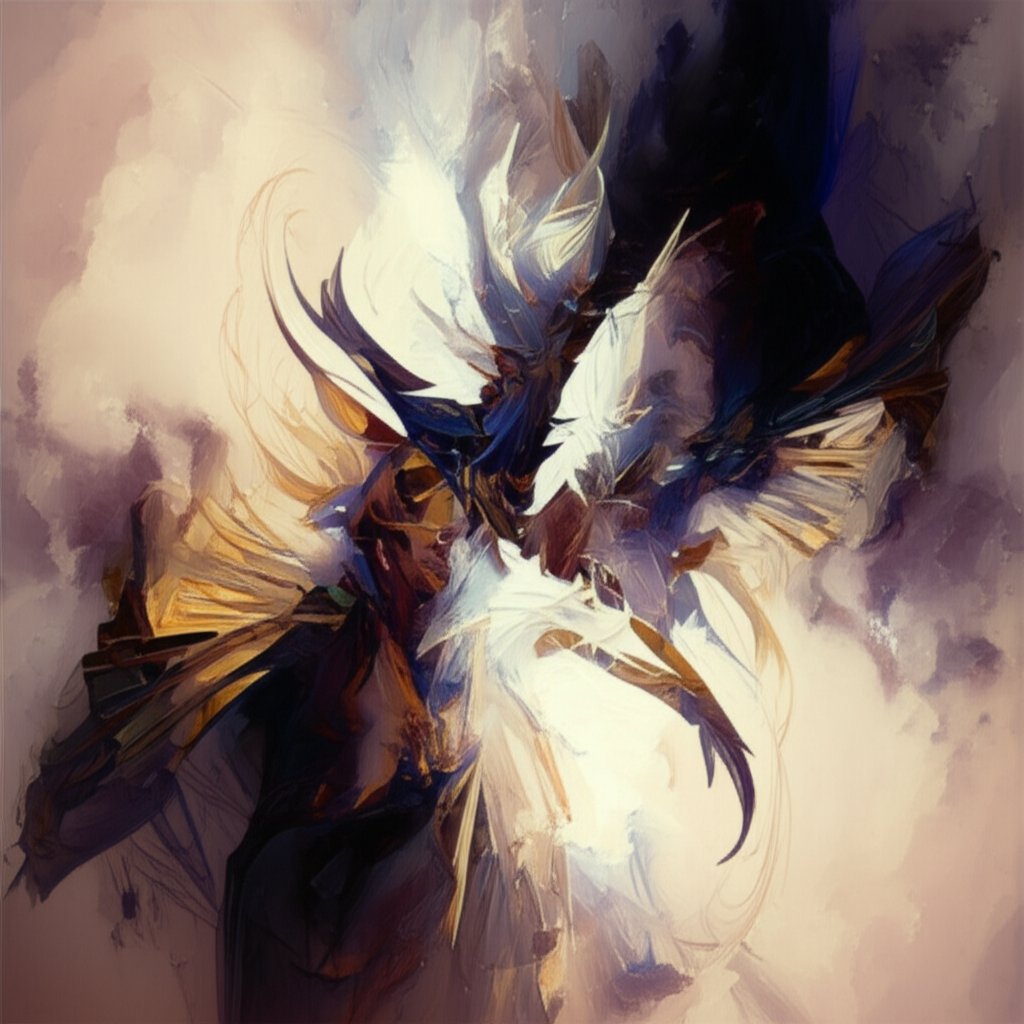
Crafting Unique Last Names and Hybrid Identities
Ever wondered why some demon characters feel more legendary than others? The answer often lies in the details—like a powerful last name or a hybrid identity that hints at a deeper backstory. If you’ve already mastered first names, it’s time to level up with advanced naming techniques, including using a demon last name generator and inventing unforgettable hybrid names. Let’s break down why these elements matter and how you can use them to make your characters truly stand out.
Why Last Names Matter in Demon Lore
When you hear names like “Lucifer” or “Beelzebub,” you might not think about last names. But in many fantasy worlds, especially those with complex demon societies, a surname carries weight, legacy, and even supernatural power. In the Demon Realm, for example, last names are symbols of dignity and glory—they represent the root of a character’s identity and their place in the infernal hierarchy [source]. Swearing upon a family name is considered a solemn oath, and each royal family’s surname is tied to a specific sin, artifact, or bloodline talent.
- Asmodeus (Lust) – Shadow Cloak, Nirvana
- Beelzebub (Gluttony) – God Devouring Mask
- Belphegor (Sloth) – Breeze Shadow Boots
- Leviathan (Envy) – Illusory Magic Shield
- Lucifer (Pride) – Fallen Angel Sword
- Mammon (Greed) – Blood Fiend Ring
- Samuel (Wrath) – Wrath King Armor
Family names can also serve as a source of story hooks—imagine a demon who must live up to (or rebel against) a famous surname. When using a demon last name generator, look for options that evoke ancient power, infamous deeds, or connections to mythic artifacts. You might even combine a generated first name with a classic surname for instant gravitas (e.g., “Azaran Mammon” or “Seraphiel Asmodeus”).
Inventing Hybrid Identities: Angel-Demon Mixes and Beyond
What if your character isn’t just a demon, but a blend of two worlds—a fallen angel, a dragon-demon, or something even rarer? Naming hybrids can be a creative challenge, but it’s also an opportunity to craft names that are truly one-of-a-kind. Tools like an angel demon hybrid name generator or hybrid fantasy name lists can help, but the real magic comes from understanding how to blend concepts, sounds, and meanings.
To get started, consider these creative strategies:
- Portmanteaus: Merge parts of two names or words to create something new. For example, combining “Seraph” (angel) and “Azazel” (demon) could yield “Seraphael” or “Azariel.”
- Thematic Juxtaposition: Pair words or syllables that contrast light and darkness, purity and corruption (e.g., “Luminshade,” “Eclipsion,” “Celestigor”).
- Descriptive Titles: Add a title that hints at the hybrid nature, such as “The Fallen Dawn,” “Heaven’s Bane,” or “The Twilight Seraph.”
- Borrow from Multiple Cultures: Use roots from different mythologies or languages for a multicultural twist (e.g., blending Latin and Japanese syllables).
For inspiration, look at hybrid naming lists from fantasy communities. Names like “Arcticmoon,” “Frostshadow,” or “Mooncrystal” show how combining elements can create evocative, memorable identities. These techniques work just as well for angel-demon hybrids, elemental mixes, or any character who straddles two worlds.
Steps for Crafting Advanced Demonic Names
- Choose a meaningful last name—draw from royal lineages, myth, or generated lists.
- For hybrids, list key traits or powers from each side (angelic, demonic, elemental, etc.).
- Experiment with portmanteaus or thematic contrasts.
- Add a descriptive title if you want to highlight the hybrid or legendary status.
- Say the full name aloud to check for flow and impact.
By paying attention to last names and hybrid identities, you’ll give your characters an extra layer of narrative depth—making them more than just another face in the infernal crowd. Ready to bring all these naming strategies together? In the final section, we’ll recap the key lessons and inspire you to use your newfound skills to create truly unforgettable demon names.
Conclusion
Ever found yourself staring at a list of names, wondering which one truly fits your demon character? Throughout this guide, we’ve explored what makes demonic names memorable, how to harness random generators for instant inspiration, and why digging deeper into mythology and culture can elevate your creations. So, what’s the secret to generating unique demon name ideas that stand out in any story or game?
Key Takeaways for Creating Memorable Demonic Names
- Understand the Anatomy: Great demon names blend harsh or mysterious sounds, ancient roots, and thematic resonance. Consider the character’s role, archetype, and the emotional impact you want their name to have.
- Use Generators Thoughtfully: Start with a demon name generator to spark ideas, but don’t be afraid to mix, match, or modify results. The best names often emerge when you combine generated suggestions with your own creative tweaks.
- Go Beyond the Basics: For main characters or major villains, look for tools that offer context-rich or culturally meaningful options. This adds narrative depth and can make your demon’s name a story in itself.
- Consider Last Names and Titles: Adding a surname or a powerful title can instantly increase the gravitas of your character and hint at their backstory.
- Experiment with Hybrids: Don’t hesitate to invent names for angel-demon mixes or other hybrids by blending sounds, meanings, or cultures for something truly original.
Choosing the Best Demon Name Generator for Your Needs
With so many tools available, how do you pick the best demon name generator? If you’re after quick lists for minor characters, a classic random generator is perfect. But when you want names that carry real weight—perhaps inspired by ancient Chinese, biblical, or mythological traditions—consider specialized tools that focus on cultural authenticity. For example, the Chinese Name Generator by CNG goes beyond random syllables, offering names with deep symbolic meaning and narrative potential. Imagine naming your demon after the essence of "shadow," "flame," or "eternal night"—you’ll instantly give your character a unique backstory and a sense of mythic grandeur.
Your Turn: Bring Your Demonic Characters to Life
When you create a demon name, remember that it’s more than just a label—it’s the first step in building a legend. Take the insights you’ve gained here, experiment with different generators, and let your imagination guide you. Whether you’re writing a novel, designing a game, or role-playing in a new campaign, the right name can set the tone for your entire world.
- Start with a generator for inspiration.
- Refine your choices based on character and context.
- Use culturally rich tools for names with depth and meaning.
- Don’t be afraid to invent something entirely new!
Ready to summon your next unforgettable demon? Dive in, experiment, and watch your characters come alive—one name at a time.
Frequently Asked Questions about Demon Name Generators
1. How do you create a demon name that feels authentic?
To craft an authentic demon name, focus on strong phonetic elements like harsh consonants and deep vowels. Draw inspiration from ancient languages or mythological roots, and consider the character's archetype or powers. Using a quality demon name generator can help you blend these features for a memorable result.
2. What are some tips for choosing between random and meaningful demon names?
Random demon name generators are great for quick inspiration or minor characters. For main villains or lore-heavy roles, consider tools that incorporate cultural or mythological depth, such as the Chinese Name Generator by CNG. This approach gives your character a name with narrative significance and authenticity.
3. Can I generate gender-specific demon names for my characters?
Yes, many demon name generators offer options for male and female names. You can filter results by gender or archetype to match your character’s personality, from powerful demon lords to enigmatic female spirits or succubi.
4. How do anime and games like Demon Slayer influence demon naming?
Anime and games often use names that reflect a character’s abilities, origins, or elemental powers. They blend meaningful syllables, kanji, or folklore references, so using an anime-inspired demon name generator can help you create names that feel at home in these universes.
5. Why should I consider using a culturally rich name generator like CNG?
A culturally rich tool like the Chinese Name Generator (CNG) provides names with deep symbolic meaning, correct character combinations, and authentic roots. This helps your demon names stand out, offering narrative depth and a sense of heritage that generic generators can’t match.
